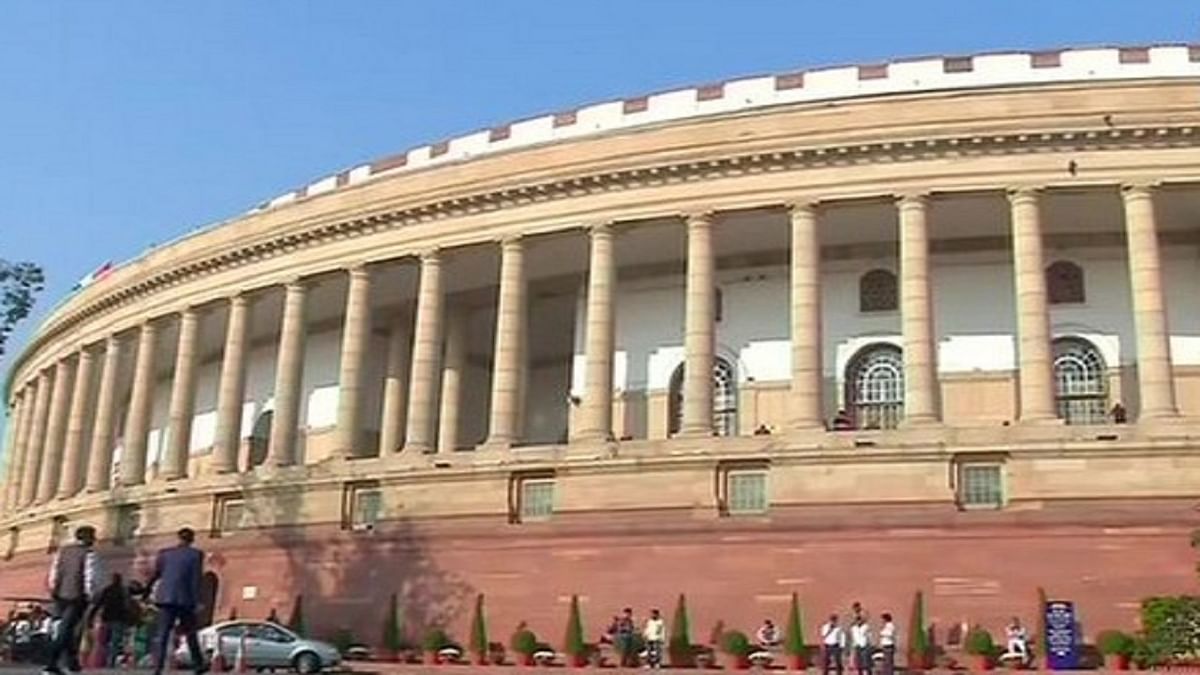[ad_1]
Recently, after the disqualification of Rahul Gandhi from the membership of the Lok Sabha, the provisions of an Act have come into the limelight, under which 42 MPs have lost their membership since 1988. Most of these members were disqualified in the 14th Lok Sabha. 19 MPs were disqualified in connection with the case of taking money for asking questions and ‘cross-voting’. MPs have been disqualified on various grounds, including political affiliation, conduct unbecoming of a parliamentarian and conviction by a court for offenses punishable by two years or more in prison.
In recent times, Congress leader Rahul Gandhi, Nationalist Congress Party (NCP) leader Mohammad Faizal PP, and Bahujan Samaj Party (BSP) leader Afzal Ansari have been sentenced to two years or more in prison following their conviction by the courts. disqualified. He was disqualified under the provisions of the Representation of the People Act. The Representation of the People Act deals with the automatic disqualification of MPs and MLAs if they are convicted of a criminal offense and sentenced to two years or more.
Faizal, who represented Lakshadweep in the Lok Sabha, was disqualified from membership following his conviction and sentence in an attempt to murder case. However, the membership was reinstated after the Kerala High Court quashed the conviction and sentence. Gandhi has moved the Gujarat High Court seeking relief in a criminal defamation case over his ‘Modi surname’ remark. A Surat court sentenced Rahul Gandhi to two years in jail.
After the enactment of the anti-defection law in 1985, Lalduhoma of the Congress was the first to be disqualified from membership of the Lok Sabha, who filed his nomination papers as a Mizo National Union candidate for the Mizoram Assembly elections. This party was formed by Lalduhoma only. During the Ninth Lok Sabha, when the then Janata Dal leader VP Singh formed a coalition government, nine members of the Lok Sabha were found guilty of violating the anti-defection law, which led to their disqualification.
However, in the 14th Lok Sabha, the maximum number of members lost their membership from the House. During this, 10 members were disqualified for indecent conduct by accepting bribes to ask questions in Parliament and nine for ‘cross-voting’ during the trust vote of the United Progressive Alliance (UPA)-I government. In July 2008, the Left Front withdrew support to the civil nuclear deal with the US, leading the government to face a vote of confidence.
In 2005, six members of the Bharatiya Janata Party (BJP), two of the BSP and one each of the Congress and the Rashtriya Janata Dal (RJD) were expelled from the Lok Sabha for ‘taking money for asking questions’. A Rajya Sabha member of the BSP was also expelled from the House. Former Additional Secretary of Lok Sabha Devendra Singh Aswal said, the decision of expulsion was upheld by the Supreme Court. None of these cases were referred to the President for sanction for removal, as the legislature itself is competent to do so.
In the 10th Lok Sabha, when the then Prime Minister PV Narasimha Rao led a coalition government, four members were disqualified from membership of the House under the anti-defection law. Members lost their membership in the Rajya Sabha as well under the anti-defection law. These include Mufti Mohammad Sayeed (1989), Satyapal Malik (1989), Sharad Yadav (2017) and Ali Anwar (2017).
Jharkhand Mukti Morcha (JMM) leader Shibu Soren and Samajwadi Party (SP) member Jaya Bachchan were disqualified from Rajya Sabha membership for holding an office of profit in 2001 and 2006 respectively. While Soren was the president of the Jharkhand Area Autonomous Council, Jaya Bachchan was the president of the Uttar Pradesh Film Development Council. The disqualification petition against the then Congress President Sonia Gandhi for holding the office of profit of Chairperson of the National Advisory Council (NAC) had turned infructuous as she had resigned from the membership of the Lok Sabha.
Aswal, a member of the Bar Council of India, said that in order to avoid a possible political upheaval, the Parliament (Prevention of Disqualification) Act, 1959 was amended in 2006 with retrospective effect from April 4, 1959, and similar petitions were rendered infructuous. Gone. The apex court’s judgment in the Lily Thomas case clarified the legal position that any conviction involving imprisonment of two years or more would automatically disqualify an elected representative from membership. Aswal said, “The Lok Sabha secretariat only has to notify the vacancy by issuing a notification so that the Election Commission can start the process of bye-election.
As a result of the decision, Rasheed Masood, a Rajya Sabha member of the Congress, was disqualified from membership of the Upper House due to his conviction in a corruption case. RJD chief Lalu Prasad and Janata Dal (United) member Jagdish Sharma were disqualified from the Lok Sabha following their conviction in the fodder scam.
[ad_2]

